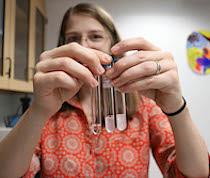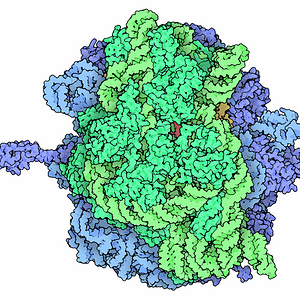- About the Course:
This course aims to push the field of Origins of Life research forward by bringing new and synthetic thinking to the question of how life emerged from an abiotic world.
This course begins by examining the chemical, geological, physical, and biological principles that give us insight into origins of life research. We look at the chemical and geological environment of early Earth from the perspective of likely environments for life to originate.
Taking a look at modern life we ask what it can tell us about the origin of life by winding the clock backwards. We explore what elements of modern life are absolutely essential for life, and ask what is arbitrary? We ponder how life arose from the huge chemical space and what this early 'living chemistry' may have looked like.
We examine phenomena, that may seem particularly life like, but are in fact likely to arise given physical dynamics alone. We analyze what physical concepts and laws bound the possibilities for life and its formation.
Insights gained from modern evolutionary theory will be applied to proto-life. Once life emerges, we consider how living systems impact the geosphere and evolve complexity.
The study of Origins of Life is highly interdisciplinary - touching on concepts and principles from earth science, biology, chemistry, and physics. With this we hope that the course can bring students interested in a broad range of fields to explore how life originated.
The course will make use of basic algebra, chemistry, and biology but potentially difficult topics will be reviewed, and help is available in the course discussion forum and instructor email. There will be pointers to additional resources for those who want to dig deeper.
This course is a Complexity Explorer Frontiers Course. The goals of a Frontiers Course are to share the excitement and uncertainty of a scientific area, inspire curiosity, and possibly draw new people into the research community who can help this research area take shape.
- About the Instructor(s):
 Dr. Sarah Maurer, Co-creator and video lecturer
Dr. Sarah Maurer, Co-creator and video lecturerDr. Maurer is interested in the abiogenesis from both the origins-of-life and artificial life perspectives. She builds model cells from amphiphiles, and examines possible life-like properties, such as metabolism or growth and division. Her current projects include: the ability of cells to survive in the absence of reproduction, artificial photosynthesis under prebiotic conditions, and studying the behavior of biomolecules and their analogues in less polar solvents to inform our search for life in the solar system and beyond.
 Dr. Chris Kempes, Co-creator and video lecturer
Dr. Chris Kempes, Co-creator and video lecturerDr. Kempes works at the intersection of physics, biology, and ecology. Using mathematical and computational techniques, he studies how simple theoretical principles inform a variety of phenomena ranging from major evolutionary transitions, to the biogeography of plant traits, to the organization of bacterial communities. He is particularly interested in biological architecture as a mediator between physiology and the local environment, and in developing general perspectives of life that can be applied in astrobiological contexts.

Maria Kalambokidis, Course materials developer and teaching assistant
Maria is broadly interested in the processes that led to biological diversity and complexity on Earth and possibly elsewhere. She works at the intersection of evolutionary biology, ecology, and astrobiology to answer questions about life’s origin and ability to adapt to extreme environments. Her previous projects include studying microbial communities from Antarctica, the North Atlantic, Amazonian rivers, and Mexico’s Chihuahuan Desert to better understand the resilience and evolutionary history of life.
This course is funded through Research Coordination Network (RCN) funded by a National Science Foundation grant (NSF Grant No. 1745355) on which Chris Kempes (SFI Faculty) and SFI President David Krakauer are co-principal investigators.
Disclaimer. The opinions, findings, and conclusions or recommendations expressed are those of the author(s) and do not necessarily reflect the views of the National Science Foundation.
- Class Introduction:
- Class Introduction
- How to use Complexity Explorer:
- How to use Complexity Explorer
- Enrolled students:
-
1,153
- Course dates:
-
18 May 2020 2pm UTC to
28 Jul 2020 5am UTC - Prerequisites:
-
None (useful to have Algebra, Introductory Chemistry and Biology)
- Like this course?
- Donate to help fund more like it
- Twitter link
Syllabus
- Introduction
- Chemical Origins
- Chemical Commonalities
- Early Life
- Evolution
- Astrobiology & General Theories of Life
- Peer-Reviewed Assignment
